Damien O’Connor: NZ united on global trade
When it comes to international trade, politicians from all sides of the aisle are united, says Labour's trade spokesman Damien O'Connor.
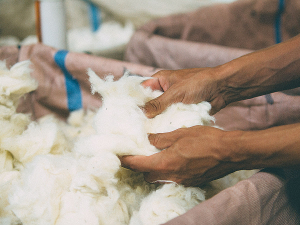 Struggling strong wool growers will be hoping moves in the industry during the year will see a much-needed lift in prices.
Struggling strong wool growers will be hoping moves in the industry during the year will see a much-needed lift in prices.
As 2021 draws to a close and 2022 approaches, Leo Argent takes a look back at the year gone by, reviewing some of the major stories that appeared in Rural News which shaped farming industry news this year.
January
Damien O'Connor started his journey around the UK and Europe seeking to secure fair trade agreements. Despite initial slow-going as the year wound to a close, O'Connor managed to snag a research deal with Ireland and the FTA with the UK in quick succession.
Milk and meat prices started strong and just kept getting stronger, reaching record highs by November, signalling good returns for farmers, providing additional financial security in these trying times.
 |
|---|
|
Agriculture and Trade Minister Damien O'Connor managed to secure an agreement for an FTA with the UK, but not the EU. |
February
With climate change being one of the main topics of conversation this year, farmers all over the country doubled down on new technologies and methods of production to contribute their part, with methane inhibitors being the most widely reported example.
A range of initiatives targeting alternative uses for wool spearheaded by industry and outside personnel alike saw increasing interest in the sector, potentially signalling a revival in crossbred wool's previously slumping fortunes.
March
Covid restrictions on international travel and shipping meant seasonal workers were unable to enter the country and freight costs soared. As the year went on the situation grew worse, causing a severe shortage of freight containers, and crops being left unharvested.
Beef + Lamb NZ directors attempted to award themselves a hefty pay rise, on top of the disestablishment of the Directors Independent Renumeration Committee, late last year, causing farmers to rebel.
With pressure from farmers and shareholders, the proposed pay rises failed to go through in April.
April
The Government made the decision to phase-out live exports by sea, causing alarm amongst farmers reliant on this trade, with some industry pundits believing that the change may hurt our trade relations with China, where a lot of live exports went.
Drought conditions became extreme in the Hawke's Bay region, wreaking havoc on crop and stock alike. Although not the first or last of the extreme weather events around the country, it served as a stark reminder of the risk of climate change.
May
Opposition to the three waters reform found a united front in the formation of the Groundswell protest movement. Composed of farmers, disgruntled council members and opposition politicians, the movement opposes what they say is poorly thought out legislation and government overreach. Over the year, the movement would take part in several ground-level protests, the most visible being the Howl of a Protest in July.
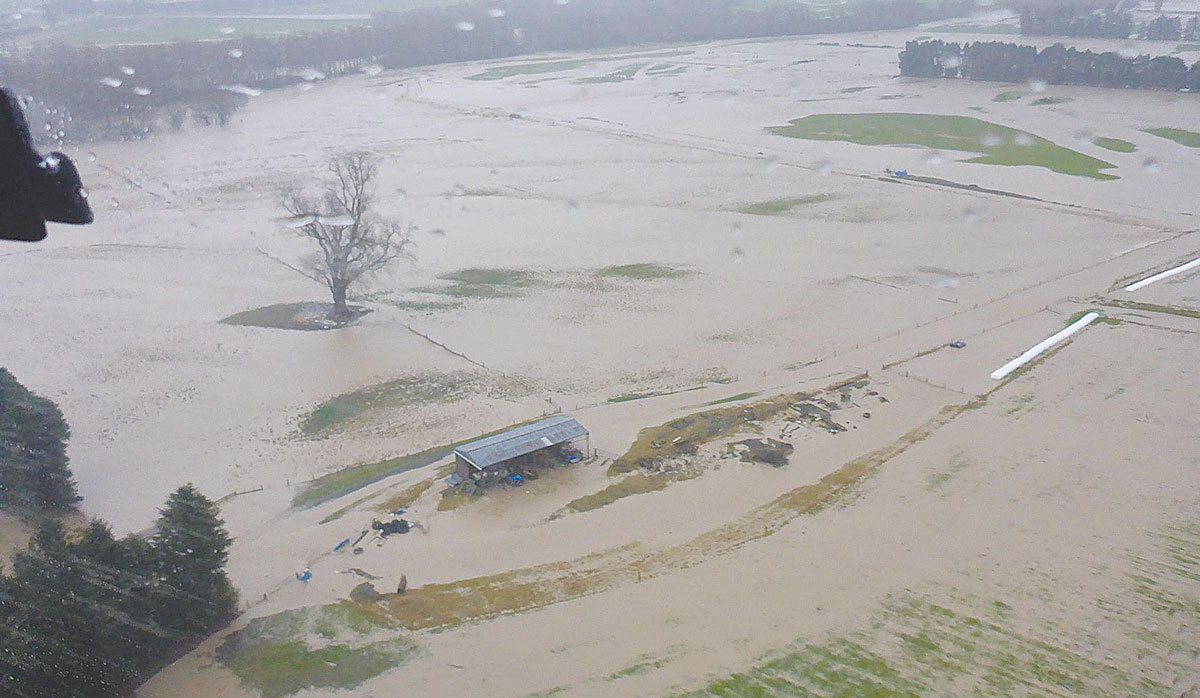 |
|---|
|
Farmers in Mid Canterbury were hit with heavy floods in June, while their counterparts in Buller experienced terrible flooding in July. |
June
At the Dairy Industry Awards there was an historic moment when two migrant brothers from India earned the coveted Share Farmers of the Year. Additionally, the Dairy Farmer of the Year award went to a farmer from the Philippines. This night showcased the positive impacts that migrants can and have had on New Zealand culture and society - farming in particular.
The unveiling of the Government's Clean Car Discount package left farmers outraged about the financial penalty on vehicles like utes, the package viewed as unfairly targeting farmers with unavoidable tax. In conjunction with the Groundswell protests, this contributed to a worsening image of the Government amongst many farmers.
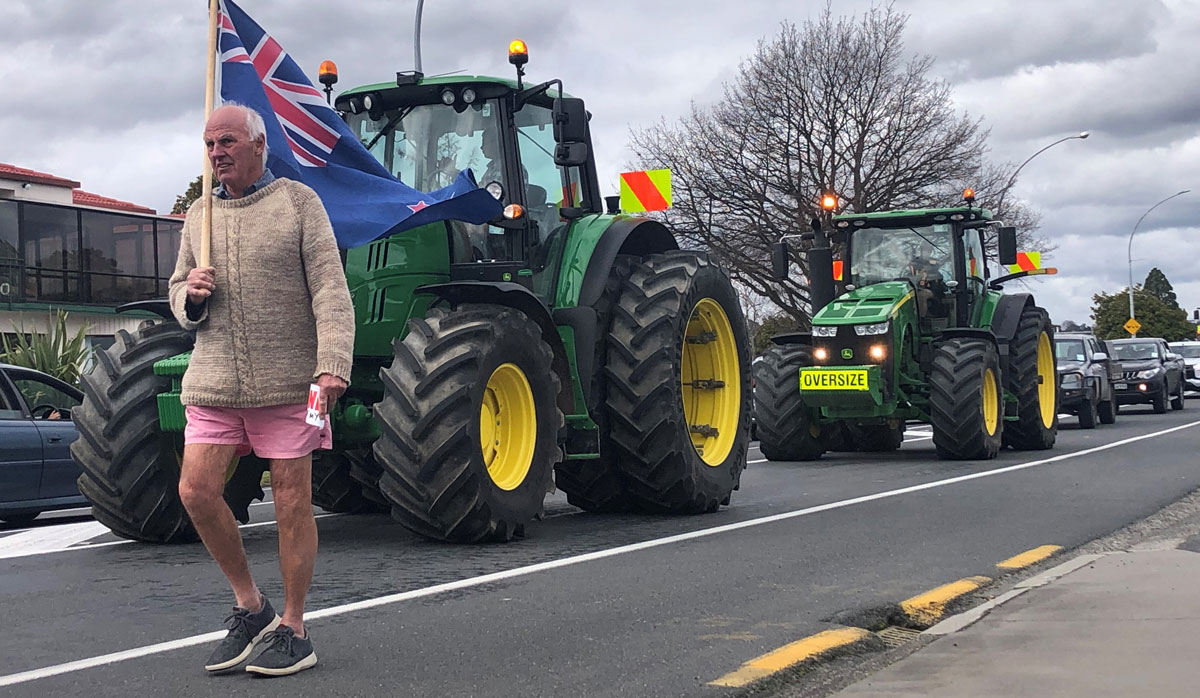 |
|---|
|
Rural people took to the streets all over the country during July for the Groundswell-organised 'Howl of a Protest' at government regulations. |
July
Beef + Lamb NZ's vote on the continuation of levies passed despite low voter turnout. Concerns were raised as to the organisation's performance in recent years, with the sting of the attempted pay rise in April still fresh for farmers.
A shortage of qualified vets was made worse by Covid border restrictions, as foreign vets cut their losses trying to enter New Zealand, instead settling for Australia with its more welcoming border policies.
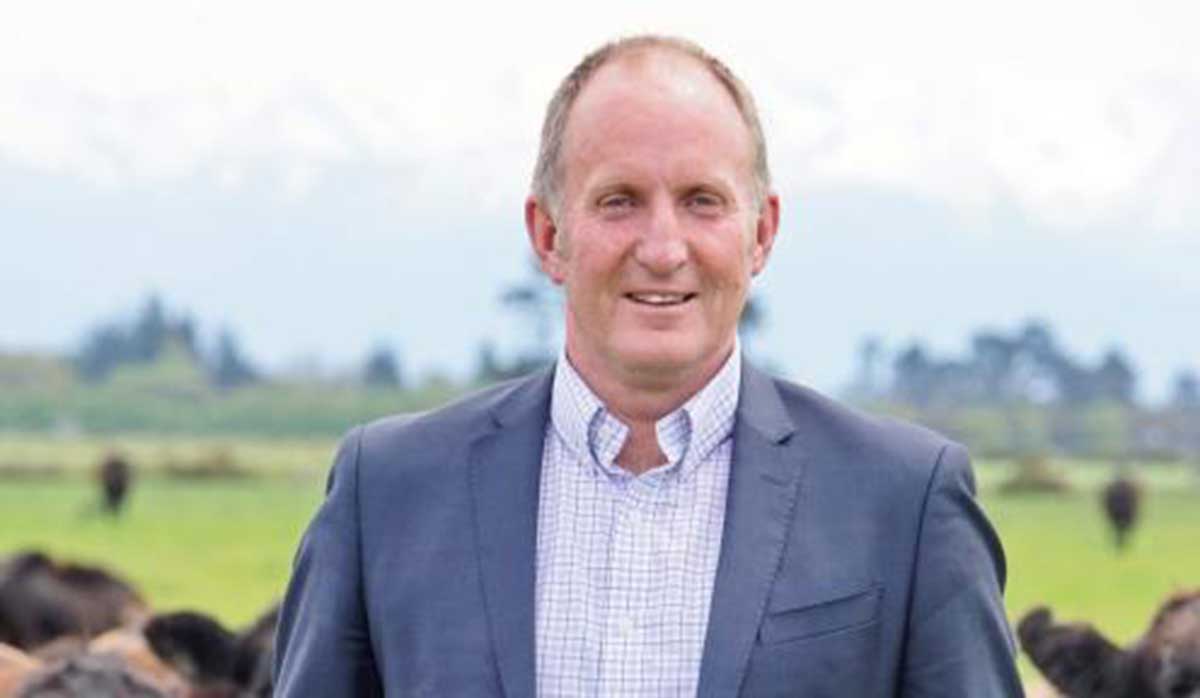 |
|---|
|
BLNZ chair Andrew Morrison and his fellow directors lost a bid to increase their fees, with farmers rejecting the move. |
August
Overseer, the farm nutrient management software, started facing increasing heat from government and local councils regarding its perceived poor effectiveness. Previously touted as a key environmental management tool, the Overseer debacle illustrates the problems of taking a small-scale tool and attempting to adapt it to a large-scale framework.
September
A nationwide study by AgResearch found that 50% of farms and vineyards showed signs of pesticide resistant weeds, far higher than the initially predicted 5%. This has put pressure on scientists and agricultural experts to find ways to not only defeat weeds but also work around potential resistance or ideally prevent resistance from developing in the first place.
October
Despite significant opposition from groups like Groundswell, Federated Farmers and many local councils, who wanted to pull out of or postpone the three waters reform, Local Government Minister Nanaia Mahuta pushed ahead with the controversial proposal anyway, prompting accusations of overreach.
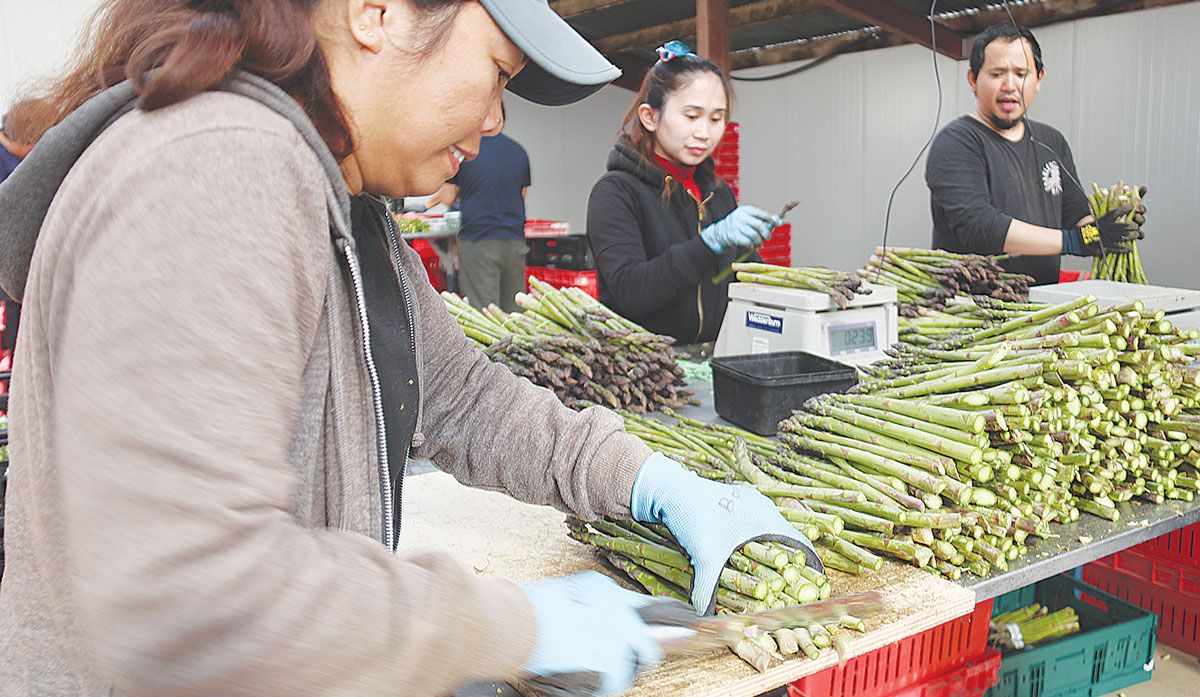 |
|---|
|
Labour shortages remained a major issue throughout the year with the horticulture, dairy, shearing and contracting sectors all impacted. |
November
An Independent Police Conduct Authority report found that small rural police stations face a lack of specialist assistance and lack of personal time causing problems of stress and fatigue, threatening to overwhelm officers.
Wools of NZ and CP Wool shareholders agreed almost unanimously (99.7% and 100% approval) to a merger into an entity called Wools of New Zealand.
The expectation is a united front will lead to more co-operation, shorter supply chains and product recognition. In conjunction with new uses for wool, this could give strong wool a shot in the arm.
To celebrate the tenth anniversary of its annual Good Deeds competition, Rabobank will give away $100,000 to improve rural community hubs, schools, clubrooms, and marae across New Zealand.
Agricultural and veterinary product supplier Shoof International has appointed Michaela Dumper as its new chief executive.
Federated Farmers is celebrating following the Government's announcement that young farmers will be able to use their KiwiSaver funds to buy their first home or farm.
The Meat Industry Association of New Zealand (MIA) today announced that Chief Executive Officer Sirma Karapeeva has resigned from the role.
The winners of the 2026 Hawke’s Bay/Wairarapa Dairy Industry Awards were announced at the annual awards dinner held at Copthorne Solway Park in Masterton on Thursday evening.
Environment Southland is welcoming this week’s decision by the Environmental Protection Authority (EPA) to approve the release of Blaptea elguetai, a leaf‑feeding beetle that will help control the highly invasive Chilean flame creeper.

OPINION: A mate of yours truly reckons rural Manawatu families are the latest to suffer under what he calls the…
OPINION: If old Winston Peters thinks building trade relations with new nations, such as India, isn't a necessary investment in…